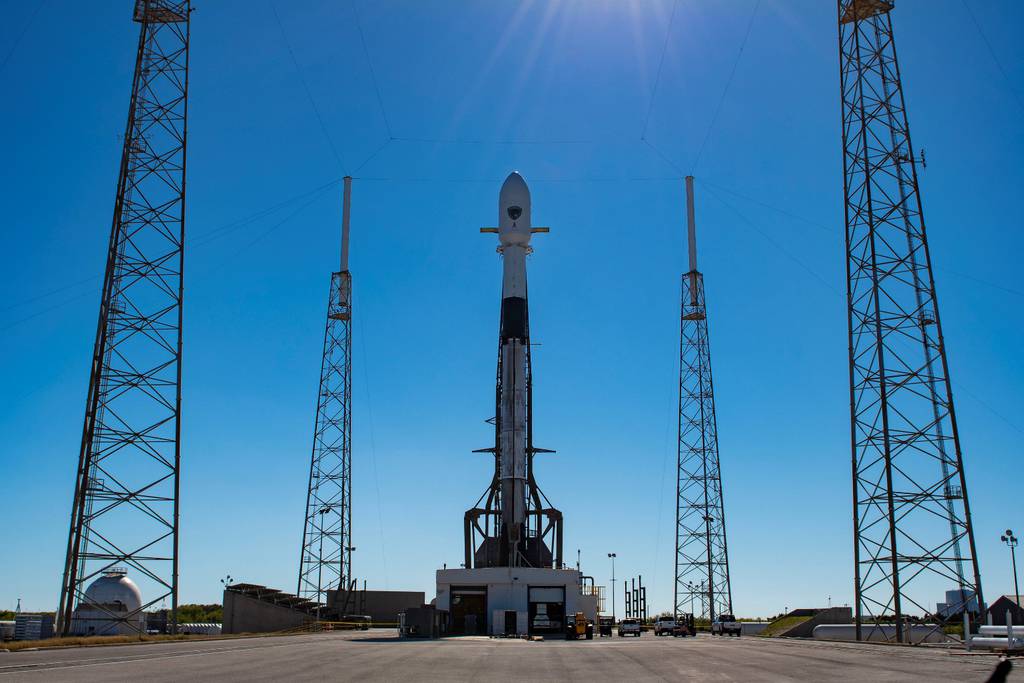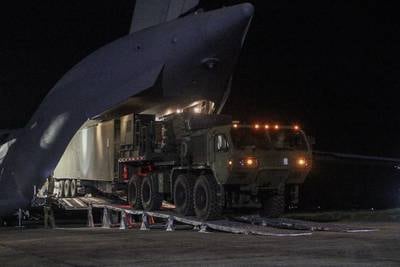WASHINGTON — An already delayed U.S. Space Force effort to develop a modern, cybersecure GPS ground system is facing new schedule setbacks.
The service is re-evaluating the delivery schedule for the Next-Generation Operational Control Segment, an upgraded version of the ground system used to operate GPS satellites. The program, dubbed OCX, was most recently planned for delivery this April, but a spokeswoman for Space Systems Command told C4ISRNET this week that timeline is now in question.
“The program’s government-contractor team is currently evaluating the schedule and anticipate having it approved later this spring,” Alicia Garges said in a Feb. 13 email.
The delay has caused “cost overruns,” she said, without providing details.
A spokesman for Raytheon, the Arlington, Va.-based company building OCX, attributed the schedule delay to “technical issues” that arose in recent testing. Neither the company nor the Space Force would elaborate on the nature of those issues.
“We are working closely with the U.S. Space Force to resolve these challenges and allow for additional training time to accommodate operator needs,” company spokesman Joel Mayoral said Feb. 13.
The Space Force operates 32 GPS satellites, which provide navigation services to military and civilian users. That fleet includes older satellites as well as upgraded spacecraft. The latest version, GPS III, is more resistant to jamming attempts, provides more accurate location information and is equipped to take advantage of encrypted military signals. The service has launched six GPS III satellites since 2018.
OCX will incrementally replace the ground system that operates those satellites today, which Lockheed Martin has sustained since 2013. Raytheon delivered the first OCX increment, Block 0, in 2017, which includes a hardware, software and cybersecurity baseline and can support launches of new GPS satellites, but doesn’t offer enough capability to control the on-orbit fleet. Blocks 2 and 3, which the company has not delivered, will bring that capability and will include more protections against cyber threats.
To ensure it can operate newer GPS III satellites while it awaits OCX Blocks 1 and 2, the Space Force in 2016 awarded Lockheed a contract to develop a software upgrade that will allow the existing ground system to control those satellites. The upgrade, which Lockheed delivered in 2019, is not as advanced as OCX and is meant as a temporary fix until the new system is completed.
Persistent delays
Schedule uncertainty has been a persistent challenge for OCX, which was supposed to be fielded in 2016. The program’s 2012 cost estimate of $3.7 billion has been revised several times, growing to $4.3 billion in 2015 and $6.2 billion in 2018. The first cost increase triggered what’s known as a Nunn-McCurdy unit cost breach, requiring the Defense Department to develop a new cost and schedule baseline in 2016.
Space Systems Command is “assessing various options,” to mitigate further schedule delays, according to Garges, though she didn’t expand on what actions the service is considering.
As the program crafts a new schedule, the Space Force’s top acquisition official, Frank Calvelli, has labeled OCX one of the service’s “long-standing troubled programs” and has made it a priority to deliver the system this year.
“These albatrosses that have been dragging the department down for decades, we have got to get [them] out of the way,” Calvelli said during a Jan. 24 National Security Space Association conference in Chantilly, Va. “This is the year we’re gonna get these programs delivered.”
Beyond OCX Blocks 1 and 2, Raytheon is already on contract for future GPS ground segment upgrades, dubbed Block 3F. The Space Force awarded the company a $228 million contract in 2021 and delivery is expected in 2025.
Courtney Albon is C4ISRNET’s space and emerging technology reporter. She has covered the U.S. military since 2012, with a focus on the Air Force and Space Force. She has reported on some of the Defense Department’s most significant acquisition, budget and policy challenges.








